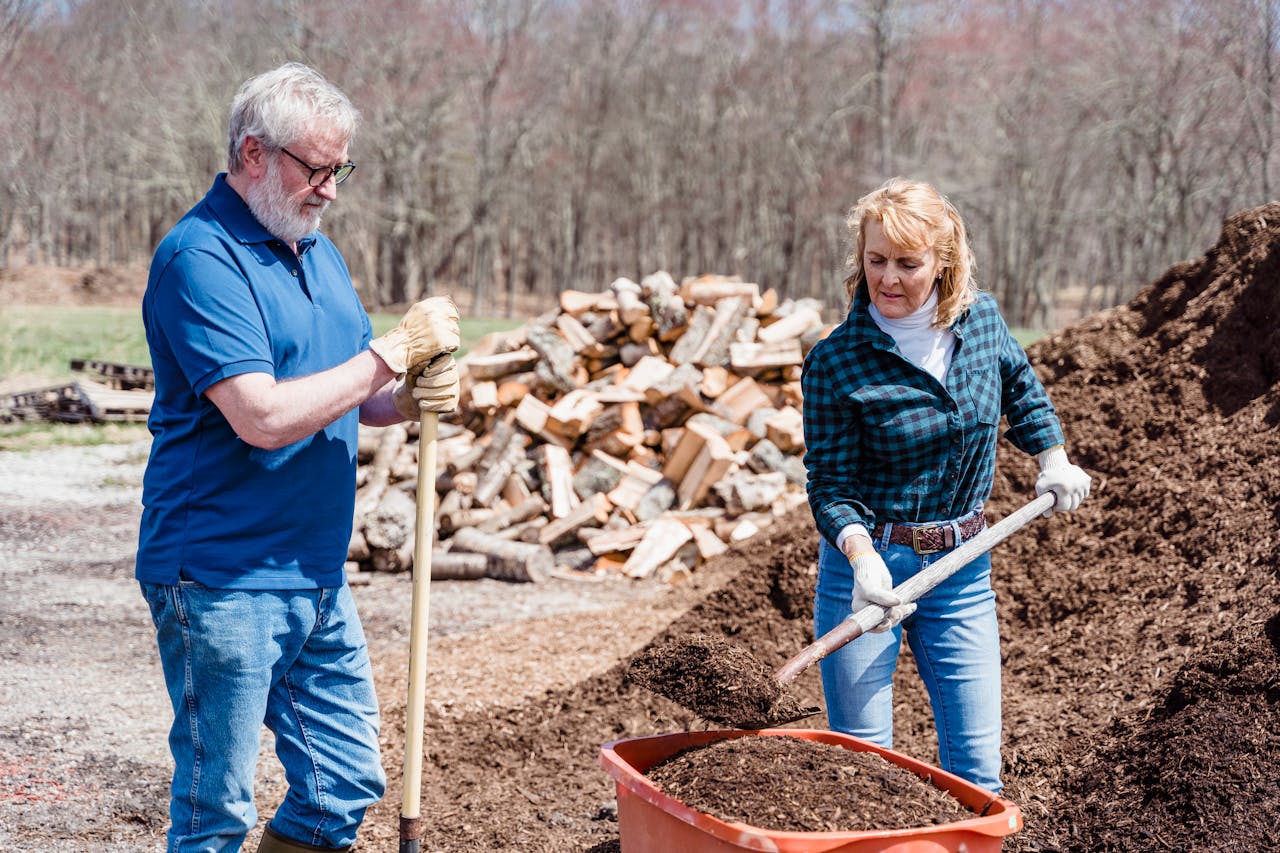Picking the best mulch for your garden beds demands a bit more consideration than merely grabbing the first bag you see at your local garden centre. This is because mulch plays a substantial role in the overall health of your garden. Mulch, in its various forms, can improve soil structure, conserve water, and prevent weeds. But how do you know which type of mulch is right for your garden? In this article, we will guide you on how to make the right choice.
Understanding the Role of Mulch in Your Garden
Before we delve into how to choose the right type of mulch, it’s crucial to understand what exactly mulch does for your garden beds. Essentially, mulch is a layer of organic or inorganic material that is spread on top of the soil surface. It plays a vital role in maintaining the soil’s health and boosting plant growth.
Sujet a lire : What Are the Most Effective Organic Fertilizers for UK Vegetable Gardens?
Mulch helps in several ways. First, it aids in preserving soil moisture, which is essential for the survival of your plants. It also regulates soil temperature, preventing it from getting too hot during summer or too cold during winter. Furthermore, mulch reduces weed growth and erosion, enriches the soil with nutrients as it decomposes and enhances the appearance of your garden beds.
Choosing the right type of mulch can make a significant difference in your garden’s overall health and appearance. Therefore, it’s essential to consider factors such as the type of plants you have, the climate in your region, and the price of the mulch.
Lire également : How to Establish a Bee-Friendly Environment in Your UK Garden?
Types of Mulch Available
When it comes to mulching your garden, you have a wide array of options to choose from. The most common types of mulch include organic mulches, such as compost, bark chips, straw, and leaves, and inorganic mulches like rocks and plastic.
Organic mulch improves soil fertility as it decomposes over time, making it an excellent choice for plants that require nutrient-rich soil. It also helps to create an attractive, natural look in your garden. However, organic mulch needs to be replenished regularly as it decomposes, which can add to your gardening costs.
On the other hand, inorganic mulch such as rocks or plastic does not improve soil fertility, but it does not decompose, making it a more durable option. It’s an ideal choice for areas of your garden where you want to suppress weeds without the need for frequent replenishment.
Comparing Mulch Prices
While the benefits of mulch are indisputable, the price is a factor that cannot be overlooked. The price of mulch can significantly vary, depending on its type and quality. It’s essential to compare the price of different mulches before making your choice.
You can use the compareatprice function to compare the prices of different types of mulches. Similarly, the pricestring and compareatpricestring functions can help you determine the value you’re getting for your money. By comparing prices, you can ensure you’re getting the best value for your money while still meeting the needs of your garden.
Selecting the Right Mulch for Your Plants
When choosing the right mulch for your garden beds, you need to consider the needs of your plants. Different plants require different soil conditions for optimal growth. For instance, some plants thrive in acidic soil, while others prefer a more alkaline environment.
If you have acid-loving plants like hydrangeas or rhododendrons, you might want to consider an organic mulch like pine needles or bark chips. These mulches tend to acidify the soil as they break down, making them a perfect choice for these types of plants.
On the other hand, if you have plants that prefer a more neutral or alkaline soil, compost, straw, or leaves might be a better choice. These mulches decompose to enrich the soil with nutrients and do not significantly alter the soil’s pH level.
Ensuring the Mulch is Organic and Free from Weeds
Finally, when choosing mulch, make sure it’s organic and free from weeds. Organic mulch enhances the soil’s fertility as it decomposes, providing your plants with essential nutrients. Plus, it’s environmentally friendly.
Also, mulch that contains weeds can introduce these unwanted plants into your garden, leading to an increase in your gardening work. To avoid this, opt for mulch that is labeled as ‘weed-free’.
Choosing the right type of mulch for your garden beds is not an easy task, but it’s undoubtedly worthwhile. By considering the type of plants you have, the climate in your area, and the price of the mulch, you can make an informed decision that will benefit your garden in the long run. Remember, the right mulch can make a world of difference in the health and appearance of your garden.
Making a Cost-effective Choice: Understanding Mulch Pricing
Mulch is undeniably useful in ensuring the health and aesthetics of your garden. However, as equally crucial as the benefits of mulch are, the cost cannot be overlooked. The price of mulch can significantly fluctuate depending on its type and quality. Therefore, it is crucial to conduct thorough pricestring compareatprice checks before settling on a type of mulch.
To help with this, utilise the compareatprice function available on various gardening websites to compare the costs of different types of mulches. If you’re shopping online, features such as the gbp url often provide the price in GBP for your convenience. Similarly, the pricestring and compareatpricestring functions can help you break down the value you’re getting for your expenditure.
It’s important to note that the price will vary depending on whether the variant isset or not. For example, organic mulch is often pricier than inorganic due to the benefits it provides as it decomposes.
Make sure to check out the price sale or sale true options, which indicate discounted prices. However, do not automatically discard options flagged as sale false or isset false. They could still provide excellent value for their cost. By comparing prices, you ensure you’re getting the best value for your money, while still meeting the needs of your garden.
In Conclusion: Choosing the Right Mulch Matters
Choosing the right mulch for your garden beds can take time and careful consideration, but the effort is undoubtedly worthwhile. The health and appearance of your garden can drastically improve with the right kind of mulch, aiding in nourishing your plants and beautifying your outdoor space.
Remember to consider important factors such as the type of plants you have, the climate in your area, the appearance you want to achieve and, of course, the price of the mulch. Use the compareatprice and pricestring functions to make an informed, cost-effective choice. Ensure that the mulch is organic and weed-free to avoid introducing unwanted plants into your garden.
Remember, mulch is more than just a layer of material on your garden bed. It’s a crucial aspect of gardening that contributes to the longevity of your plants and the overall aesthetics of your garden. Whether you choose organic mulch like compost, bark chips, straw, and leaves, or inorganic mulch like rocks or plastic, the right choice can make a world of difference to your garden’s health and beauty. Happy gardening!






